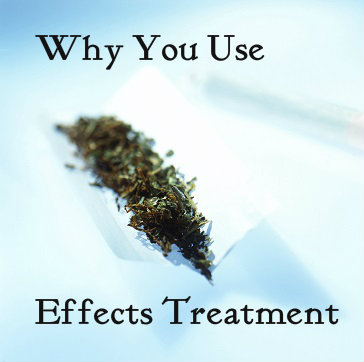Why A Person Smokes Marijuana Impacts The Treatment Outcome
Not all people get involved in substance abuse for the same reason. Broadly speaking, some people are motivated primarily by the desire to increase their experience of pleasure, while others are motivated primarily by the desire to escape or avoid painful experiences. According to the results of a study published in March 2014 in the journal Addictive Behaviors, the underlying reasons for marijuana use have a significant impact on the results of treatments designed to address cannabis addiction. It appears that addicts motivated by pain avoidance have a harder time maintaining their recovery than their peers motivated by pleasure-seeking.
What Is Cannabis Use Disorder?
 Marijuana or cannabis addiction is officially classified as part of a larger condition called cannabis use disorder. Some people affected by this disorder are not addicted to marijuana or other forms of cannabis, but still experience serious life impairment as a result of their drug use. Other affected individuals have undergone the long-term changes in brain chemistry that set the stage for marijuana/cannabis addiction and all other forms of substance addiction. Many people think that marijuana/cannabis addiction is a rare phenomenon. However, current evidence indicates that nine out of every 100 users of marijuana will develop symptoms that qualify them for an addiction diagnosis. Teenage marijuana users develop diagnosable addiction symptoms at close to twice this rate. In addition, addiction rates skyrocket among daily users of all ages; one-quarter to one-half of these individuals will eventually develop diagnosable symptoms.
Marijuana or cannabis addiction is officially classified as part of a larger condition called cannabis use disorder. Some people affected by this disorder are not addicted to marijuana or other forms of cannabis, but still experience serious life impairment as a result of their drug use. Other affected individuals have undergone the long-term changes in brain chemistry that set the stage for marijuana/cannabis addiction and all other forms of substance addiction. Many people think that marijuana/cannabis addiction is a rare phenomenon. However, current evidence indicates that nine out of every 100 users of marijuana will develop symptoms that qualify them for an addiction diagnosis. Teenage marijuana users develop diagnosable addiction symptoms at close to twice this rate. In addition, addiction rates skyrocket among daily users of all ages; one-quarter to one-half of these individuals will eventually develop diagnosable symptoms.
Emotional Motivations
Much of human behavior stems from the conscious or unconscious impact of various emotions and emotion-based motivations. Psychologists commonly refer to pleasure-seeking motivations as “positive” reasons for engaging in a behavior. Conversely, they commonly refer to pain-avoidance motivations as “negative” reasons. When it comes to substance intake, the terms “positive” and “negative” don’t mean that some people have “good” reasons for using drugs or alcohol while others have “bad” reasons. Instead, they simply mean that some people use drugs and alcohol because they believe that substance use will enhance their pleasurable experiences, while others use drugs or alcohol because they believe that substance use will help them avoid feeling bad or escape current bad feelings. Individuals with “positive” motivations for substance use can develop problems with abuse and/or addiction just like people with “negative” motivations. However, the two groups of substance users typically hold distinctly different mental/emotional points of view about themselves, their surroundings and their experiences.
Impact On Treatment Outcomes
In the study published in Addictive Behaviors, researchers from the University of Washington and Virginia Polytechnic Institute and State University looked at the treatment outcomes of marijuana addicts whose drug use stems from “negative” motivations. They conducted their work with information gathered from 87 adults who underwent treatment for issues related to a chemical reliance on marijuana. These participants provided information on the reasons they used marijuana in any given situation. In turn, for each participant, the researchers matched these motivations to three known markers of diminished mental well-being: lack of belief in the ability to control one’s behavior, use of ineffective coping strategies to deal with unpleasant emotions and an impairing state called psychological distress.
The researchers concluded that marijuana addicts who use the drug for “negative” reasons have increased chances of believing they can’t control their actions, using ineffective coping mechanisms to deal with their emotions and developing substantial amounts of psychological distress. The researchers also concluded that each of these adverse impacts develops independently of the others, which means that attempts to address one of the three issues will not reduce risks for the other two. In addition, the researchers found that, compared to marijuana addicts who don’t use the drug for “negative” reasons, marijuana addicts who do use the drug for these reasons have greater problems achieving or maintaining abstinence from marijuana intake after they complete their treatment programs.
The authors of the study published in Addictive Behaviors note that their new findings echo previous research efforts that indicate that “negative” reasons for drug or alcohol use produce more problems during recovery than “positive” reasons for drug or alcohol use. Current psychotherapeutic approaches for people affected by marijuana addiction typically focus on dealing with unpleasant or unwanted emotional states. The study’s authors believe that their work validates this approach and serves as an additional reason for continuing to focus on treating “negative” emotions in people who develop cannabis-related addiction issues.
Read About The Most Abused Substances To Self-Medicate Anxiety



